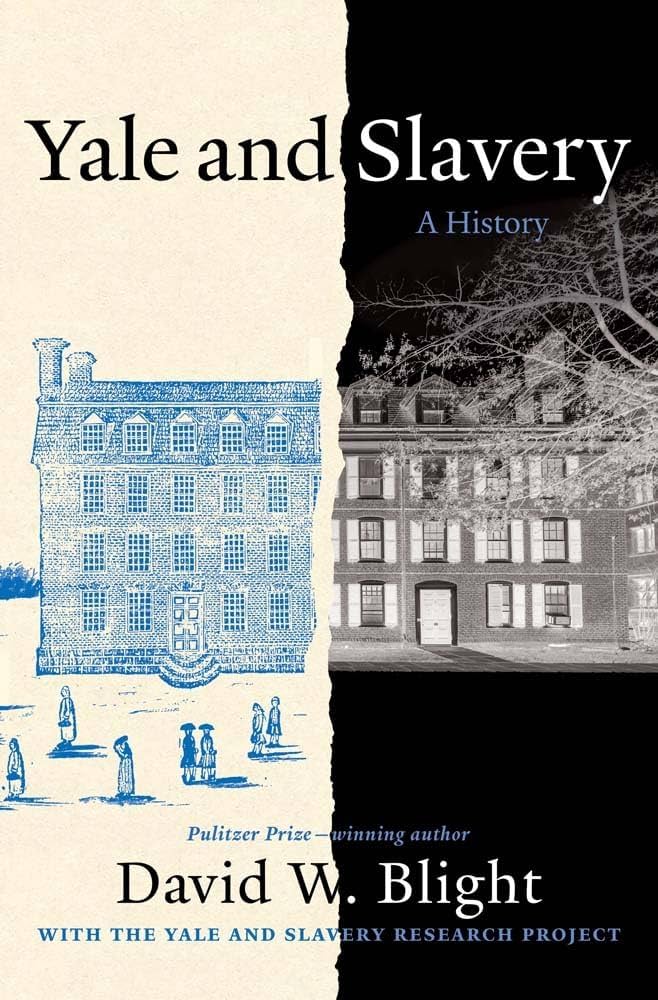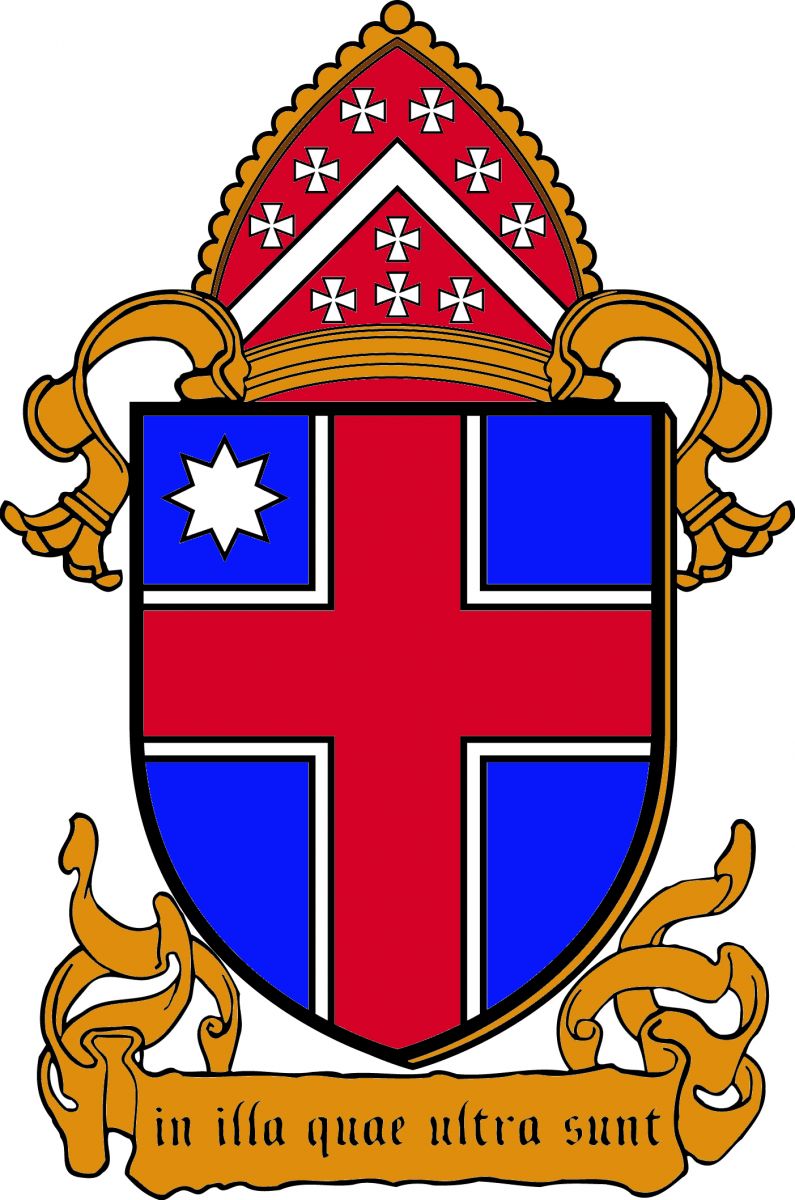
Since 2020, Yale University has been working on The Yale and Slavery Research Project. The research findings were published in full on February 16, 2024. President Peter Salovey and Yale Corporation Senior Trustee Josh Bekenstein made an announcement about the results of the project and Yale’s ongoing commitment to address historic racism, including the consequences of slavery. The published results of the project can be seen at yaleandslavery.yale.edu. Also on February 16, the book Yale and Slavery: A History was published. The book can be purchased in bookshops or accessed online for free.
The Yale and Slavery Research Project aims to live up to the words of the Rev’d Dr. Martin Luther King, Jr.: “If we are to go forward, if we are to make this a better world in which to live, we’ve got to go back. We’ve got to rediscover…” The research team was led by David Blight, Sterling Professor of History, of African American Studies, and of American Studies and director of the Gilder Lehrman Center. The research received vital assistance from faculty, staff, librarians, and New Haven community members. The Gilder Lehrman Center for the Study of Slavery, Resistance, and Abolition at the MacMillan Center provided administrative leadership and support.
Berkeley Divinity School’s Dean Andrew McGowan welcomed the publication and the ongoing commitments being made by and for the whole university. “The work of confronting our past is ongoing. This major step must help us prepare for next steps as we reflect on what we are learning about the past and plan for a better future.”
In 2021, Berkeley Divinity School adopted a major commitment to ongoing work in its curriculum, community life at all levels, and in the symbolic expressions of its identity, under the title “In Penitence and Faith.” Berkeley’s leadership will continue to study the results of the Yale and Slavery Research Project in its own ongoing work to combat racism and to train students for effective ministry in multicultural settings, locally and globally.
Yale and Slavery: A History reminds us again of the difficulties attached to the figure of George Berkeley. Berkeley was Yale’s benefactor long before Berkeley Divinity School was founded, but his reputation as scholar, educator, and bishop led the founders of the school to use his name a century after his time in the American colonies.
In 1723, the Irish-born Berkeley “began to look toward the Americas” (Yale and Slavery: A History, 61), wanting to establish a college in Bermuda to train the sons of colonists for ministry. However, this vision was tainted with racism. He wanted these ministers to work to convert the Indigenous peoples, and he imagined that it might be necessary to kidnap Indigenous children in order to enroll and convert them. Berkeley secured a charter from King George I and a grant from Parliament, but the school never eventuated.
Berkeley purchased Whitehall farm in Rhode Island, where he wrote, preached, and founded a philosophical society. There, he waited for the funding that never came. He developed a friendship with Samuel Johnson, Yale class of 1714, an Anglican priest who would go on to found King’s College (now Columbia University). This friendship influenced Berkeley to donate Whitehall farm, funding for a program of graduate study, and a considerable library to Yale when he abandoned the Bermuda project.
Enslaved laborers worked Whitehall farm before and after Berkeley donated it to Yale, and George Berkeley is known to have bought at least three enslaved people himself. Berkeley made his views on slavery publicly known. While he “advocated for the baptism of enslaved people, and he condemned what he called ‘an irrational Contempt for the Blacks, as Creatures of another Species’” (Yale and Slavery: A History, 61), he did not challenge slavery and suggested that the conversion of slaves to Christianity could even benefit slaveholders.
Berkeley Divinity School, like the rest of the Yale community, receives the re-telling of these stories with deep sorrow and consciousness of the need for ongoing repentance. In words that would have been familiar to George Berkeley, but also to Absalom Jones and to Alexander Crummell, we pray:
Almighty and most merciful father,
we have erred and strayed from thy ways like lost sheep,
we have followed too much the devices and desires of our
own hearts,
we have offended against thy holy laws,
we have left undone those things which we ought to
have done,
and we have done those things which we ought not to
have done.
But thou, O Lord, have mercy upon us,
spare thou those who confess their faults,
restore thou those who are penitent,
according to thy promises declared unto mankind
in Christ Jesus our Lord;
and grant, O most merciful Father, for his sake,
that we may hereafter live a godly, righteous, and sober life,
to the glory of thy holy Name. Amen.
Our penitence has to find form, with God’s help, in a new awareness and commitment that finds concrete form here at Yale as well as in the wider Church.
In the words of Willie Jennings Associate Professor of Systematic Theology and Africana Studies, “If we’re going to continue to train the next generation of leaders, we need to reckon with our own racial past. And that past centers in slavery.” Our understanding of our own history is expanding. The story does not revolve only around the white and powerful. Now we know, for example, about the enslaved people who built Connecticut Hall, the early Black students at Yale, and the legacy of George Berkeley. Black students have been a part of Yale’s story from the very beginning, and they belong at Yale.
Announcing the results of the Yale and Slavery project on February 16, President Peter Salovey quoted from Alexander Crummell: “We read the future by the past.”
Further reading:
George Berkeley, A proposal for the better supplying of churches in our foreign plantations, and for converting the savage Americans to Christianity (London: H. Woodfall, 1724), 6.
Thomas Clap, The annals or history of Yale-college, 1700 to 1766 (New Haven, CT: John Hotchkiss and B. Mecom, 1766), 38.
George Berkeley, A proposal for the better supplying of churches in our foreign plantations, and for converting the savage Americans to Christianity (London: H. Woodfall, 1724), 6.
Wilder, Ebony and Ivy, 93–95. 21. Henry M. Fuller, “Bishop Berkeley as a Benefactor of Yale,” Yale University Library Gazette 28, no. 1 ( July 1953): 16.
Richard H. Popkin, “Berkeley’s Influence on American Philosophy,” Hermathena 82 (1953): 128.
On the people Berkeley enslaved, see Edwin Gaustad, George Berkeley in America (New Haven, CT: Yale University Press, 1979), 94; Alice Brayton, George Berkeley in Newport (Portland, ME: Anthoensen, 1954), 113. For his views on slavery, see George Berkeley, “Anniversary Sermon before the Society for the Propagation of the Gospel,” in The Works of George Berkeley, Bishop of Cloyne, electronic ed. (Charlottesville: InteLex, 1999), 7:122; George Berkeley, “A Proposal for the Better Supplying of Churches in Our Foreign Plantations and Berkeley’s Petition,” in Works, 7:346; and George Berkeley, “The Querist and Other Writings on Economics,” in Works, 6:136–37. See also Michael J. Rozbicki, “To Save Them from Themselves: Proposals to Enslave the British Poor, 1698– 1755,” Slavery and Abolition 22, no. 2 (2001): 29–50; David Berman, Berkeley: Idealism and the Man (Oxford: Oxford University Press, 1994), 130; and Travis Glasson, “‘Baptism Doth Not Bestow Freedom’: Missionary Anglicanism, Slavery, and the YorkeTalbot Opinion, 1701–30,” William and Mary Quarterly 67, no. 2 (2010): 279–318. On the philosophical influences on proslavery thought, see, for example, Michael O’Brien, Conjectures of Order: Intellectual Life and the American South, 1810–1860 (Chapel Hill: University of North Carolina Press, 2004).
